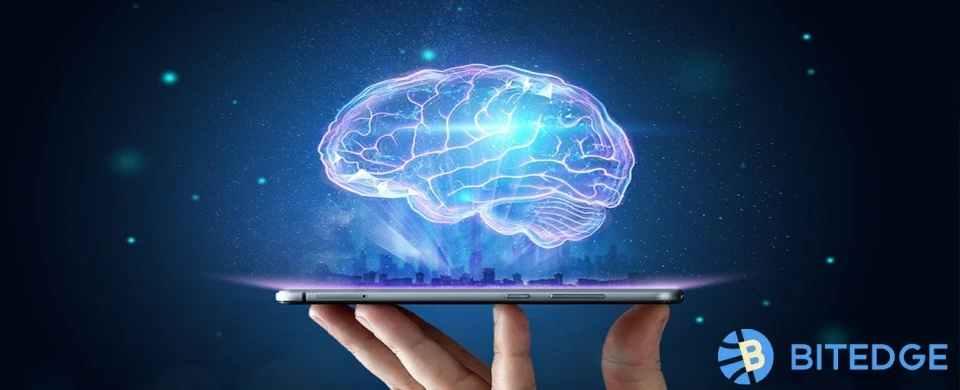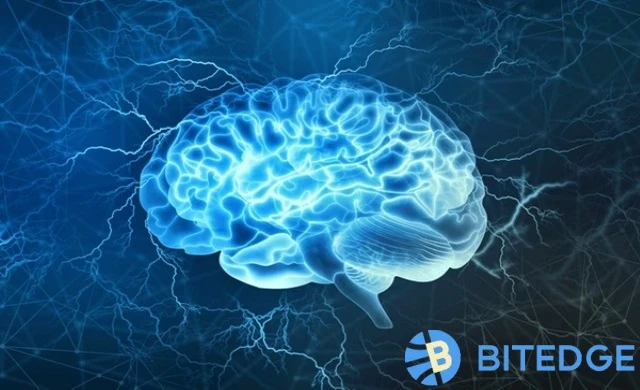How Gambling Impacts the Brain?
Gambling directly hits the reward and motivation circuits in the brain. When you do something enjoyable like gambling, dopamine gets released, giving you pleasure and satisfaction.
The unpredictability of gambling creates an exciting, adrenaline-fueled state.
➡️ MRI scans show the urge to gamble activates the same feel-good areas that react to stuff like food, sex, and addictive drugs – parts of the prefrontal cortex, ventral striatum, ventral pallidum, and insular cortex.
- The suspense before you find out if you won or lost is linked to dopamine spiking in the prefrontal region.
➡️ Winning triggers big dopamine surges in the reward system, especially the nucleus accumbens. The nucleus accumbens reacts to rewards with dopamine, reinforcing the behavior.
- The more you gamble and win short-term, the more it rewires your brain to crave that rush.
➡️ Over time, constant gambling makes the reward circuitry less sensitive. You need more and more dopamine to get the same good feeling. This pushes you to gamble more often and bet bigger to get your dopamine fix.
- It can start a destructive cycle of chasing losses despite the consequences.
How do Gambling and Drug Addiction Overlap in the Brain?
There’s a ton of overlap between the brain processes in gambling addiction and drug addiction.
Gambling and drug use first give you dopamine and pleasure.
But long-term they desensitize your reward system and drive compulsive behavior regardless of the damage to your life.
- Brain scans show gambling addicts have reduced dopamine transporters, similar to drug addiction.
When dopamine signaling is impaired, you desperately seek activities that give you that dopamine hit, like gambling or drugs. - The prefrontal cortex also shows less activity during gambling in addicts.
This area handles decision-making, impulse control, and thinking of future results. Problems here contribute to poor choices and risky behavior in gambling addiction. - Genetic research has revealed shared risk factors for both gambling addiction and alcoholism.
Variants of genes that regulate dopamine and serotonin are linked to developing compulsive gambling. Your brain chemistry probably influences gambling addiction vulnerability.
How Gambling Exploits the Brain’s Reward System?
The basis of gambling addiction is the brain’s reward circuitry. Enjoyable stuff like food, sex, or winning money causes dopamine spikes that reinforce those behaviors.
Dopamine drives motivation and makes you crave pleasurable experiences again and again.
The dopamine system starts in the ventral tegmental area and projects to the nucleus accumbens, prefrontal cortex, amygdala, and hippocampus.
- The nucleus accumbens in particular processes rewards, pleasure, and addiction.
- Its dopamine receptors interpret dopamine signals from the ventral tegmental area.
Dopamine surges in the nucleus accumbens create feelings of enjoyment, satisfaction, and even euphoria.
- Your brain learns to connect specific activities with these rewards.
- In gambling, the unpredictability of wins and losses causes extra strong dopamine spikes that intensify the gambling compulsion.
Over time gambling addicts become desensitized to the dopamine of regular wins.
- More and more gambling is necessary to reach previous levels of excitement.
- This spiral worsens gambling addiction.
The Similarities Between Gambling and Drug Addiction
There are striking commonalities in the brain processes behind gambling addiction and drug addiction – dysfunction in reward and motivation regions like the ventral tegmental area, nucleus accumbens, prefrontal cortex, and insula.
1. Both gambling and drug addicts show reduced dopamine D2 receptor availability in imaging.
Dopamine activates D2 receptors during rewarding behaviors like gambling or getting high. However, overstimulating them leads to fewer receptors.
2. Low D2 receptors are linked to worse impulsivity and addiction.
People with fewer D2 receptors may gamble or use more drugs trying to make up for inadequate dopamine signaling.
3. Neurotransmitters like glutamate, serotonin, and norepinephrine also have parallels in both addictions.
Glutamate dysfunction follows gambling cues. Serotonin affects compulsivity and poor impulse control in addicts. Stress hormones like norepinephrine spike during gambling sessions.
4. Environmental factors like trauma can trigger addictive dopamine rushes.
Gambling and drug addiction share psychological and brain vulnerabilities. Finding the neuronal pathways they overlap may explain the common combination.
How Gambling Addiction Damages the Brain Long-Term?
While gambling first gives pleasant dopamine highs, long-term addiction can seriously mess up brain function.
Impulsivity gets worse as poor decision circuits lose control.
Why Dopamine is Key in Gambling Addiction?
It’s well proven that the neurotransmitter dopamine has a central role in gambling addiction. Dopamine handles motor control, motivation, learning connections between behaviors and rewards, and decision-making.
It gets released when you do fun stuff as part of the reward system.
Reversing Gambling’s Brain Effects with Treatment
Though gambling addiction involves complex brain processes, research shows you can reverse the changes with therapy and medication.
➡️ Medications like opioid blockers and antidepressants can stabilize out-of-whack dopamine signaling in addiction. Cognitive behavioral therapy improves prefrontal cortex function for better self-control and decision-making. Mindfulness training also reduces reward system sensitivity to gambling triggers.
➡️ Combined counseling and medications have the strongest effects. Therapy builds coping skills and resistance to gambling temptations. Medications fix neurotransmitter imbalances.
➡️ A key part of treatment is preventing relapse. Recognizing high-risk situations and craving triggers lets you avoid or manage them proactively. Ongoing support like Gamblers Anonymous helps you stay motivated and vigilant in recovery.
💡 More research is still needed, but current science shows that targeted treatment can reverse the harmful brain changes from compulsive gambling. A comprehensive biopsychosocial approach works best.

The Mental Health Toll of Gambling Addiction
The psychology of gambling addiction involves more than just the reward circuits in the brain. Long-term gambling can seriously impact mental health and function in all areas of life.
➡️ Problem gamblers often deal with increased anxiety and depression. They may use gambling to escape painful emotions, but ultimately it typically makes emotional suffering worse.
➡️ Gambling addiction can damage relationships, finances, and work. Fighting arises from the gambling obsession and related issues like lying and theft. Job performance and attendance usually decline. Huge financial losses lead to unmanageable debt and even bankruptcy.
➡️ People with gambling problems frequently have narcissistic tendencies and delusions of beating the odds. Underlying problems like trauma, ADHD, or bipolar may also contribute. Any mental health conditions should be evaluated in treatment.
➡️ Counseling builds self-awareness around the psychological drivers of your gambling. Developing healthier coping methods for stress and emotions is key for recovery. An integrated approach addresses both the brain and psychological perpetuation of addiction.
Why Gambling is So Addictive?
Gambling activates the brain’s reward system, but why does it become addictive for some people and not others? Psychologists have perspectives on what pulls you into gambling addiction:




Online Gambling – A Modern-Day Threat
The explosion of online gambling and betting sites provides 24/7 access to gambling from your home. This incredible convenience comes at the cost of fueling addiction.
| 1. You can bet on sports, poker, slots, and casino games online. | ➡️ Aggressive promotions offer sign-up bonuses and bets with little or no money down. ➡️ Pop-up ads tempt even those not seeking gambling. |
| 2. With online gambling, the rapid rewards reinforce the behavior. | ➡️ You can place bets every few minutes rather than hourly at casinos. ➡️ Wins and losses build faster, accelerating addiction. ➡️ The anonymity reduces felt accountability. |
| 3. Gambling apps make it an ever-present temptation, especially on your smartphone. | ➡️ Youth are particularly susceptible to developing online gambling problems. ➡️ Their developing brains have less impulse control and grasp of risk. |
| 4. Regulations exist but enforcement lags behind fast-evolving technology. | ➡️ Identifying and restricting underage and problem gamblers poses challenges online. ➡️ However, sensible policies can balance curbing abuse while allowing recreational gambling. |
Expanding Access to Gambling Disorder Treatment
Only a small percentage of American gambling addicts receive treatment. Barriers like stigma, costs, and ignorance prevent many people from getting help. Expanding treatment means tackling these obstacles.
1. Gambling disorder is deeply stigmatized
Many struggle silently rather than seek treatment because of shame or fear of judgment. Challenging stereotypes and reframing them as a medical issue can lessen stigma.
2. Limited insurance coverage also blocks access to care
Counseling, medications, and even inpatient treatment may not be adequately covered for gambling problems. We need to advocate for better insurance benefits.
3. Integrating screening and referrals into routine health care would improve access for high-risk groups like the elderly or veterans
Training providers to sensitively assess for gambling issues is key.
4. Raising public awareness and providing mental health resources may encourage more people to pursue help
Meeting the needs of minority groups and others will facilitate treatment engagement.
Preventing Gambling Addiction – Possible?
Can we prevent gambling addiction? While tough, evidence-based policies and programs targeting those most vulnerable may help reduce disordered gambling.
In Conclusion
Gambling disorder is a complicated neurological and psychological condition with all the characteristics of addiction. Brain imaging makes clear how gambling disrupts the reward system and leads to compulsive behaviors. There are major dopamine-fueled changes in areas like the nucleus accumbens and prefrontal cortex.
Gambling addiction also takes a psychological toll, harming mental health, relationships, finances, and employment. Individualized, integrated treatment can reverse neurological changes and address the psychological drivers of addiction.
Restricting access, promoting responsible gambling, early intervention for vulnerable groups, and public education offer examples of prevention tactics, albeit hard to implement fully. More research and advocacy remain urgently needed to tackle this destructive disorder. But progress in understanding the brain impact of gambling brings hope for better health outcomes.

